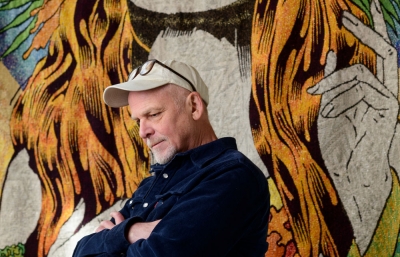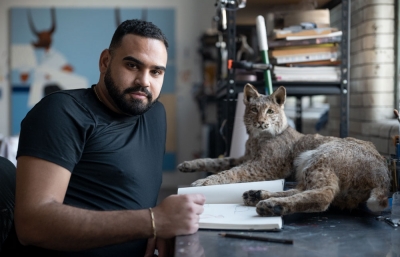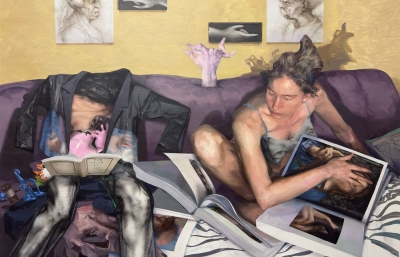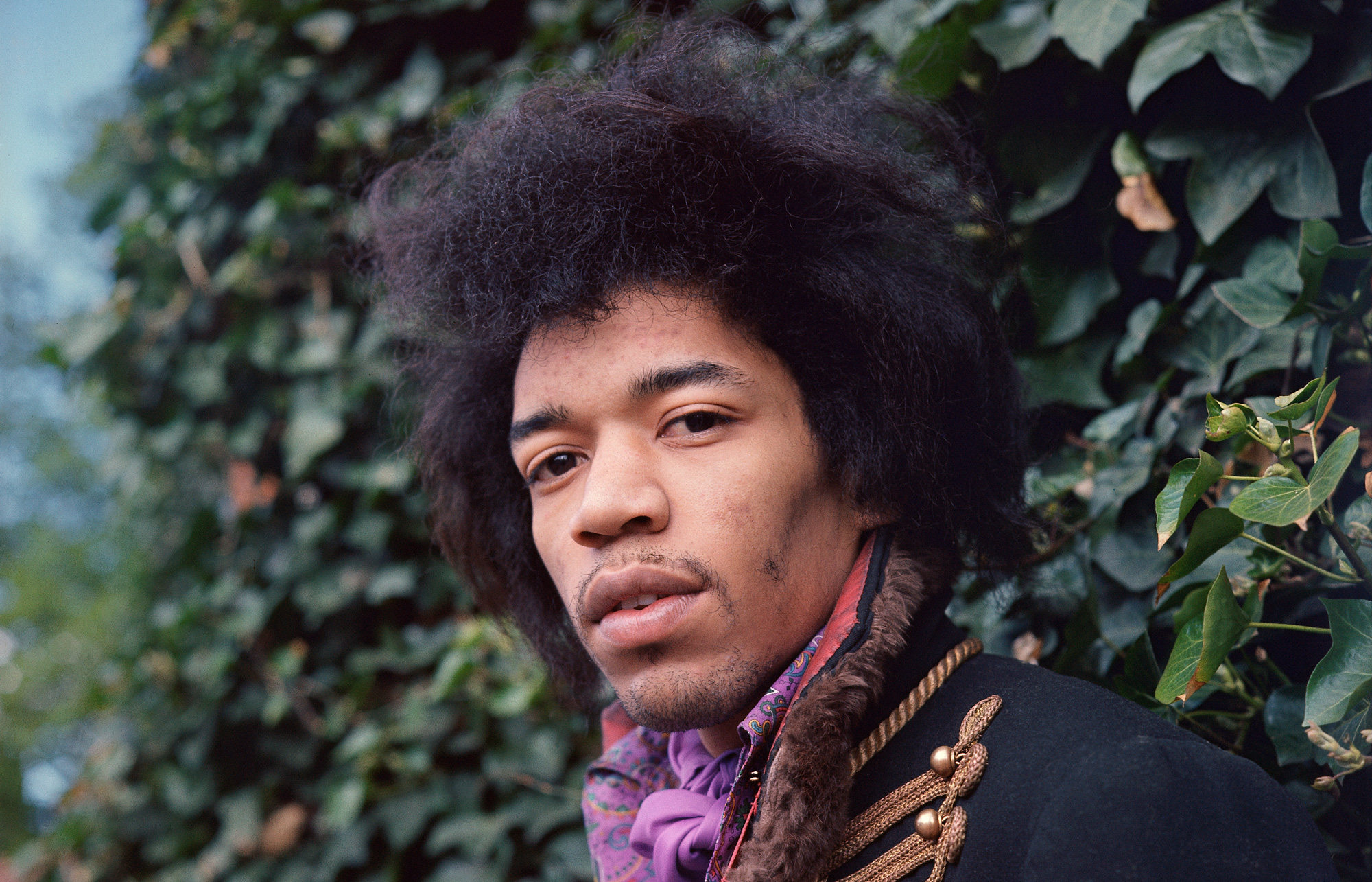
Jimi Hendrix
Still An Experience
Interview by Evan Pricco
Everyone’s had their Jimi Hendrix moment. Mine was floating on a raft in the middle of Ruth Lake in Northern California listening to “Voodoo Child” back in 2001 on a perfect hot summer’s afternoon. I’m sure my parents would say theirs was seeing the sonically unmatched Hendrix in concert at a Fillmore West show in the late 1960s. Maybe yours was seeing the D. A. Pennebaker documentary on Monterey Pop, the famed concert where Hendrix lit his guitar on fire and instantaneously created one of the most iconic moments in the history of Western art. So many experiences encapsulate Jimi Hendrix as their focal point that he remains one of the most singular identities in American rock, one who has never really been matched.
This year has seen so many noted 50th anniversaries: the Summer of Love, the Beatles’ Sgt. Pepper’s Lonely Hearts Club Band, and, a personal favorite, the groundbreaking Miles Davis album, Miles Smiles. For Jimi Hendrix, 2017 is the 50th Anniversary of his debut album, Are You Experienced? and follow-up Axis: Bold As Love. Yes, it’s also been 50 years since that infamous guitar-burning ritual at Monterey. These moments and images, the psychedelic yellow and purple cover of Are You Experienced? and Jimi’s eccentric fashion sense are larger than life. As someone who wasn’t alive in 1967, I think of Jimi as almost too perfect to have even existed, so essential to the story of the 1960s that he has attained mythic status in the realm of talent and influence.
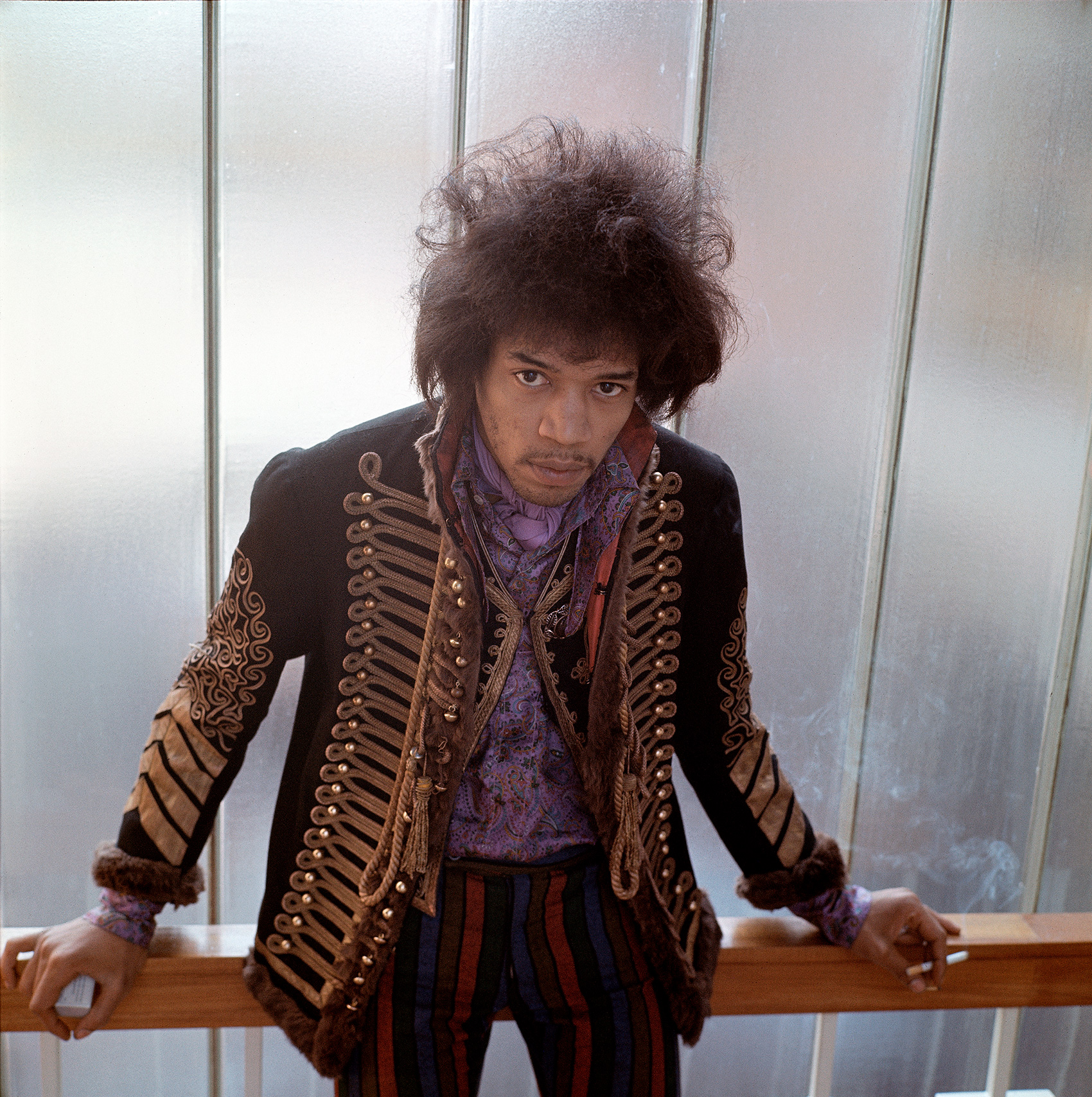
To celebrate the 50th Anniversary of the major early milestones in Jimi Hendrix’s career, we sat down with Jimi’s sister, Janie, who was nine when Jimi passed, but today is director of the Hendrix estate. Janie was in Wisconsin for the Experience Hendrix 2017 tour, where musicians play classic Jimi tunes to audiences new and, well, experienced. She told us of a side of Jimi many don’t know existed, a young painter who found inspiration in his hometown of Seattle, an ambitious backup guitar player who longed to be a frontman, and a proud Hendrix family who was unaware of their son’s incredible voice. We learned of the legend and his art, and how a sensitive soul from the Pacific Northwest became one of the most famous artists the world has ever known. Fifty years later, we still marvel at the magical stories of the Hendrix experience.
Evan Pricco: You are currently on the Experience Hendrix tour now, right? Do you often get a chance to travel with them?
Janie Hendrix: I love being on tour with everyone, and I think celebrating Jimi's music and legacy with all the audiences, and of course, all the musicians, is a great and fun time. The only time I'm not able to be on the road with scheduled tours is if we are in a lawsuit or trying to protect our rights.
Because Jimi is so ingrained in American culture in so many different ways, what does this tour mean to you and the family? Are you re-introducing Jimi, or maintaining the legacy?Jimi had a concept of the electric church. The electric church was his music and sound going out to the audience; them experiencing it, and their passion, expression and applause creating an energy that comes back on stage. Well, obviously Jimi's not here anymore, so that can't happen from him, but with his music played by other musicians, we still can create a very, very similar effect. For the young people who, unfortunately, weren't alive when Jimi was here, they weren't ever able to participate, so I think the tour helps recreate the experience in so many ways. It helps people hear the songs and in different versions. He had so many different genres of music and wrote over 200 songs. The people in the audience can maybe re-experience it. Maybe some did attend some of the concerts or festivals back in the 1960s, and now they get to bring their children, their grandchildren and just keep it going, generation to generation.
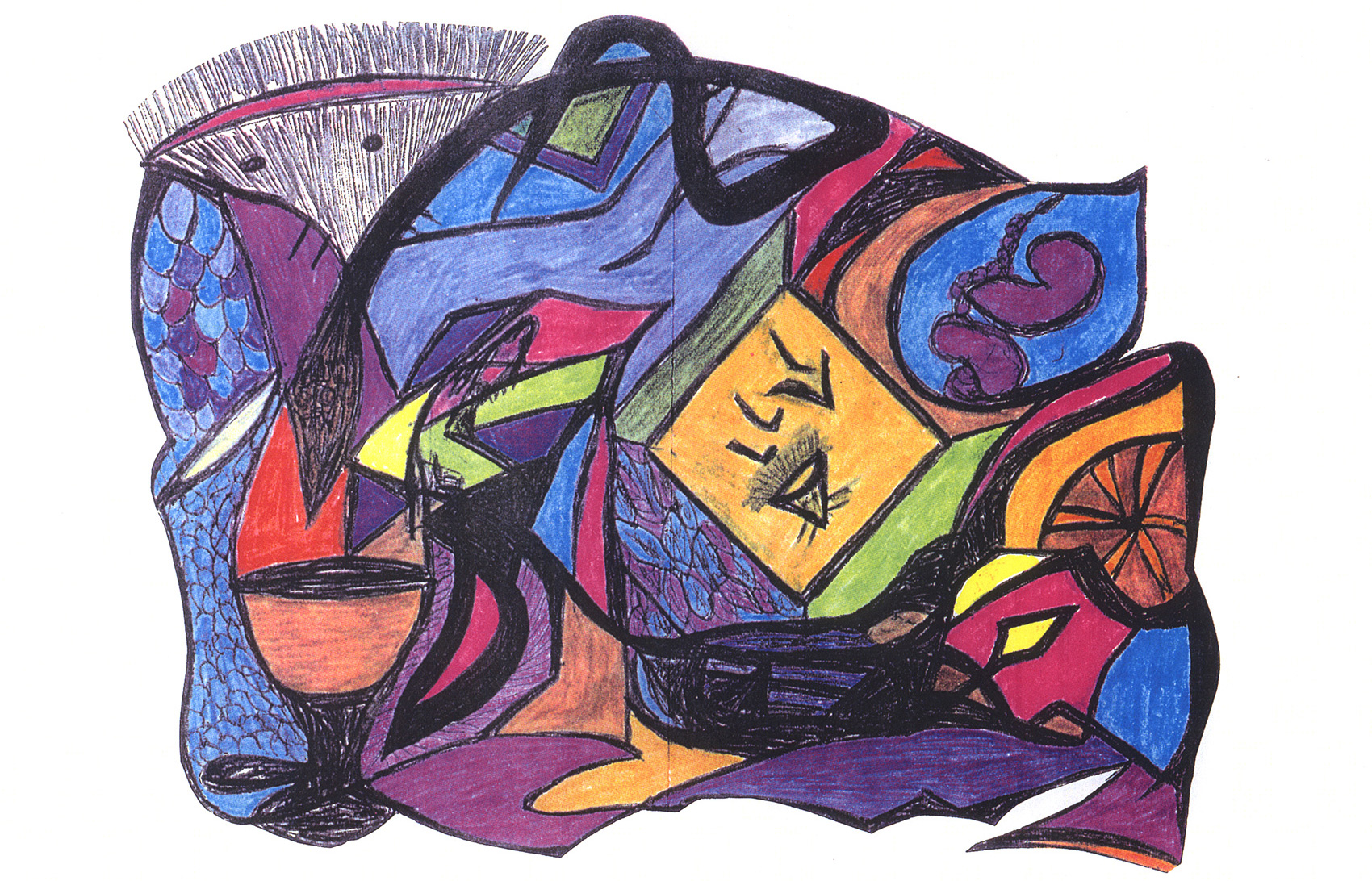
Growing up in Seattle and being quite young when Jimi broke out and became a world renowned musician, was there a sense in the house early on that he was going to become famous?
Well, I can kind of tell you from my father's perspective, though he's not here anymore, that he often said that Jimi would just be a sideman, because he played in a lot of bands, you know, like the Isley Brothers, and later with Ike and Tina Turner. So my dad just thought he was going to be a sideman, and I remember being at home the day Jimi called from London, so excited and said, “You know, I'm off to the big time, and I'm gonna make it. They're forming a band around me and gonna use my name!" Because, at that time, Jimi wasn't using his name, or he was going by Jimmy James, or James Maurice. So he says, "I'm gonna go by Jimmy Hendrix, but we're gonna change the spelling of it to Jimi." My dad was like, "Oh, that's really cool, that's awesome!"
The funny part was, Jimi said, "They're gonna put these two white guys with me that have hair like me, and we're gonna be a three-piece band." Jimi was so excited to be able to be the leader of his own group and not be a sideman. And I know that my dad was completely thrown aback by that because he was just, like, "I honestly thought that he would only be a backup musician." So, for him to make it and be the leader of his own band and write the songs that he wrote was truly amazing.
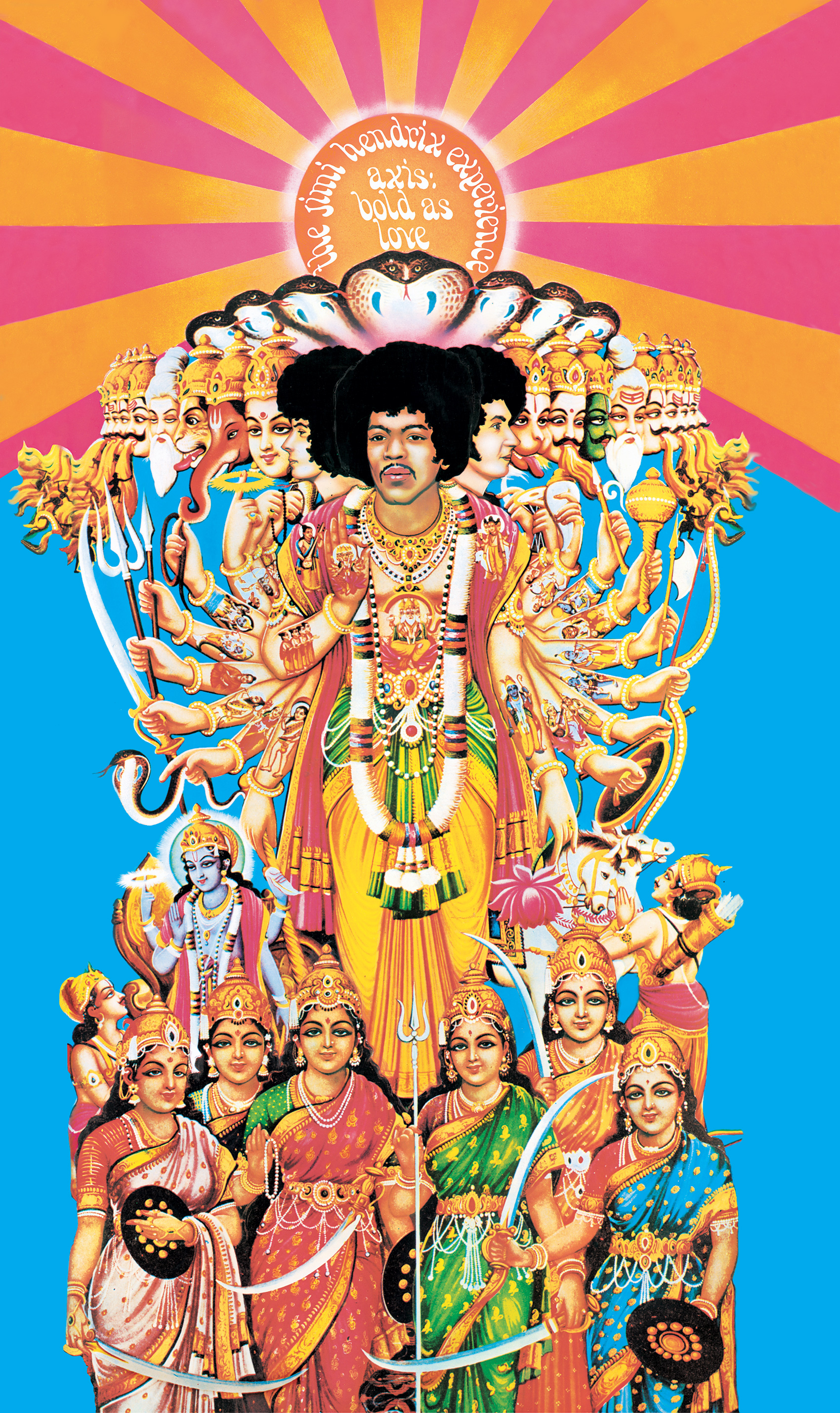
I know this sounds like a simple question but I think it's kind of important: Was the family aware that he had such a good voice?
It's funny you say that. My grandmother could sing really well, she was in Vaudeville. She was a performer, dancer and singer, and my dad could sing really well, too. He used to win a lot of jitterbug contests. That's how he made some of his money, and he just had a really good voice. My dad used to tell Jimi all the time, "Man you can't sing! Like, you really can't!” So when Jimi called home to say that he's off to make it, he says, "And dad, guess what? I'm gonna sing! I figure everyone else is out here hollering, so why not? I'm gonna holler, too!" Jimi was referring to Bob Dylan, like you can't really understand what he's saying, and he's just hollering away.
But the first time we heard Are you Experienced? we were living in a triplex, one of those homes divided up into three units. Our neighbors, my parents used to call them hippie girls, had gone down to the department store where they sold records and bought Jimi’s record, though we didn’t know it. But when they were playing it, the walls were so thin, my dad said, "I don't know who’s singing, but that guitar playing… that's Jimi." So my mom went next door and knocked and asked what they were listening to, and sure enough, they showed her the album of Are you Experienced? And my mom said, "You know that's our son?" And the girls were excited, and said, "Okay, here, take the album, we'll go get another one.” So, that's how we got our very first Are you Experienced? album. It was from hearing it through the walls.
I didn’t realize until later on, after, of course, being a Jimi music fan, that Jimi was a visual artist. I guess you could say a painter and illustrator, right? When he was a kid, was Jimi actively drawing?
His artistry came first. He actually wanted to be a commercial artist. He used to draw cartoons and had really good craftsmanship as far as understanding how drawings should be. He’d draw Mt. Rainier or he would draw hydroplane races. He loved football, so we have a lot of his drawings of various teams playing each other. He also liked to do funny cartoons, which expressed his sense of humor, something Jimi carried on throughout his life. Art was his first love before the guitar. He loved to draw and had really good handwriting because my dad was a stickler for having good penmanship.
If he wrote something he couldn't read, he'd rip it up. I experienced that as well, where he'd say, “No, you have to write legibly and people need to be able to read what you're writing." And if you'd ever seen Jimi's writing or his handwritten lyrics, they're beautiful. They're like an art unto themselves because he really practiced his handwriting, as well as just doodling.
When Jimi came back to the States from Europe, he really wanted to get everyone's attention. So he took the Fender Strat that he used at Monterey and painted this beautiful kind of mural on the guitar. His whole purpose was to use it as a sacrifice and burn it, so he was also displaying his artistry then, with the guitar.
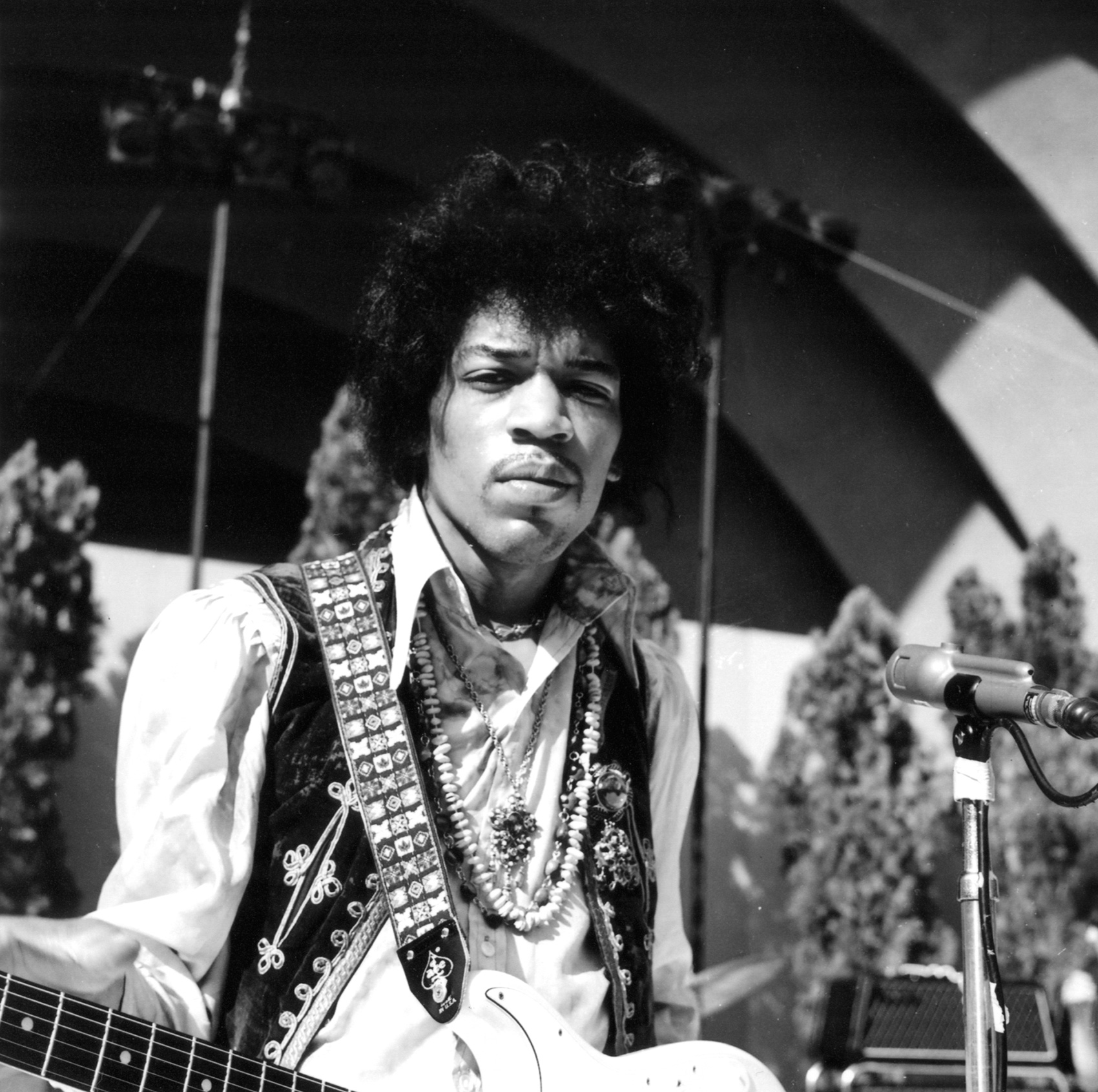
What meaning did London have for Jimi at the end, since London is kind of where he had his breakthrough as a frontman? Even though he was from Seattle, he is so associated with that London scene of the mid to late 1960s.
Jimi would talk about London all the time and how we had to go over there and see for ourselves and experience it because it was a beautiful place. He didn't experience the prejudice that he was experiencing in America. You know, growing up in the neighborhood where we lived, it was very diverse culturally, yet, it still was considered the central district, or the CD, or living off of skid row, which meant that people were poor. It was very diverse. That was what he grew up around. That's how Jimi saw things, but that wasn’t how the world saw things, especially in the U.S. at that time.
But I think over in Europe, or at least in London, there was more acceptance. You had people from Africa, Jamaica, East India. People weren't necessarily looking at the color of your skin; they were listening to the music, at least the people who were in music. In the U.S., they were forcing Jimi to pick a genre, a style of music to be in. He would always say, “Don't try to figure out what kind of music I play, because you'll only confuse yourself.” Even on this tour, we reflect that Jimi had ballads, country, blues, rock. People now just know that Hendrix sound. There's no definition of what type of music it is.
Is there something quintessentially Seattle about Jimi?
Oh, absolutely. There's a song he wrote called “Spanish Castle Magic.” There's a club where he used to go and perform that was called Spanish Castle. So, in the song, Jimi says, "It takes about half the day to get there by dragonfly," but what he's talking about is the bus. It took him a half a day to get there by the transit bus, and he talks about the clouds and rainy days. I think the reason so much music comes from Seattle—people are joking and saying, “It's the water,” but also when it's raining, there's only so many things that you can do. You can't really be outside, so you have be inside… and it can cause the blues. Being inside all day can help you focus on writing songs. He always considered Seattle his home even though he lived in New York and London and a couple other places. He had places he stayed, but seeing the world, Seattle was always still his home. I think that it reflected in his drawings.
He had a lot of drawings of mountains. You know, in “Voodoo Child,” there is the lyric "chopping down the mountain with the edge of my hand." Well, when you look out the window and there's Mt. Rainier and the Cascades all around you, definitely that was part of his experience. Then, in finding some of his handwriting, we discovered one of the things he wrote, "West Coast Attaboy." That's some of his roots, and we named an album after that.
Looking at the 50th anniversary of his first album in 1967, do you remember how much Jimi’s life started to change in that year? This myth began to grow at Monterey Pop after he burned his guitar on stage, but then, a few months later, he releases what is widely considered one of the greatest debuts of all time.
They were being played on radio a little bit before this, and that was big. To get someone in your family played on the radio, that was huge. But I don't know, for him, if it was so much about the record sales and whatnot, and more about this creative energy. He had a message for people and he wanted people to hear his music. That was something that he not only wrote down in his journals but also spoke to people about when he did interviews. He would say, "I just want people to hear my music, I want them to come out, I want them to experience it, feel it in their bones.”
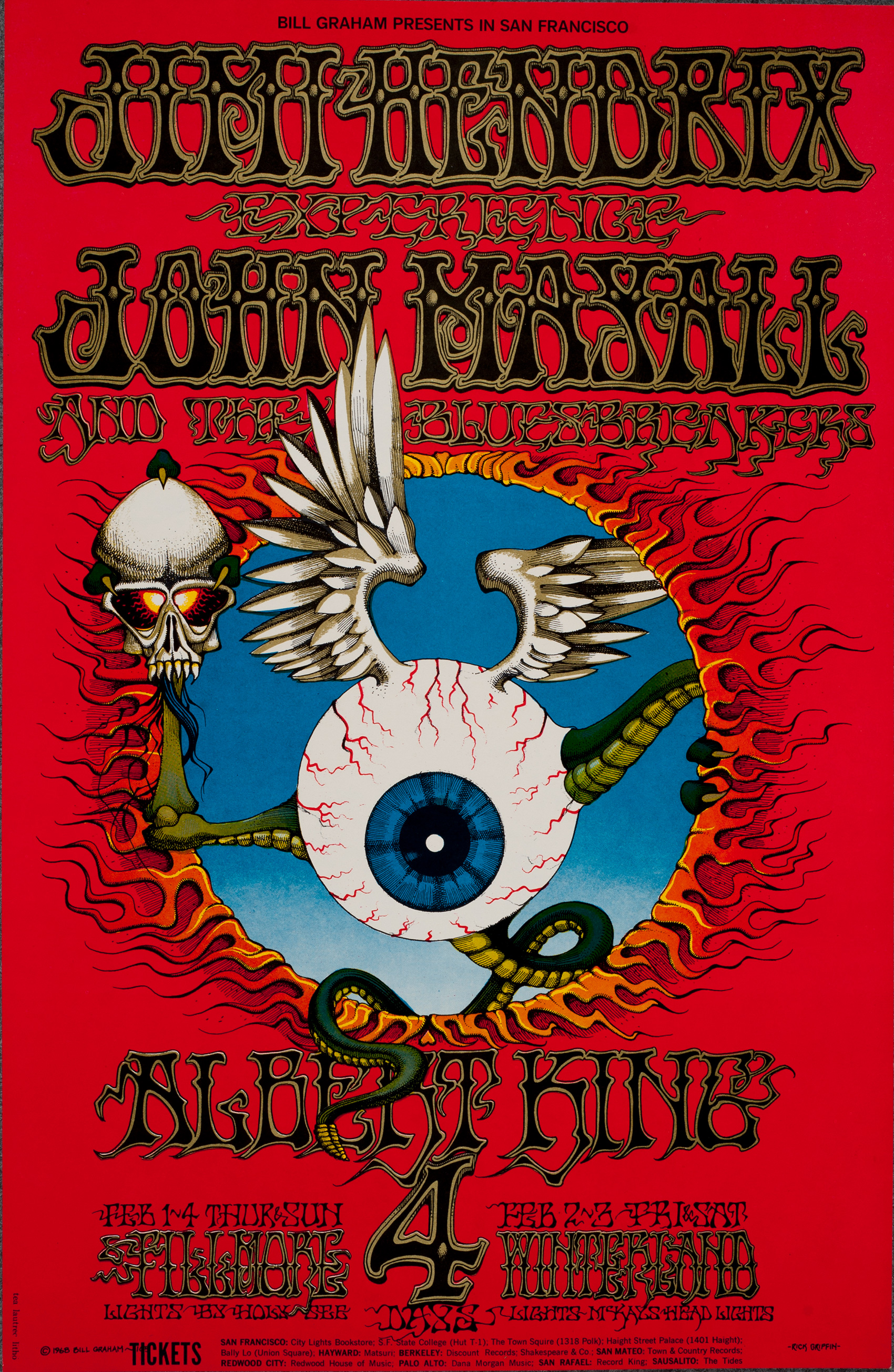
And, of course, not saying that money wasn't important, because money's a tool to get you from point A to point B, but because of the success, he was able to buy and build his own studio. I think there's only one other person, Nat King Cole, I think, that had his own studio. For Jimi to have that vision, for him, it was just about a place where he could go, be creative, not have to book studio time—whenever he wanted to be in there, he was able to create. I think what changed the most in his life was that he got to be and do what he wanted.
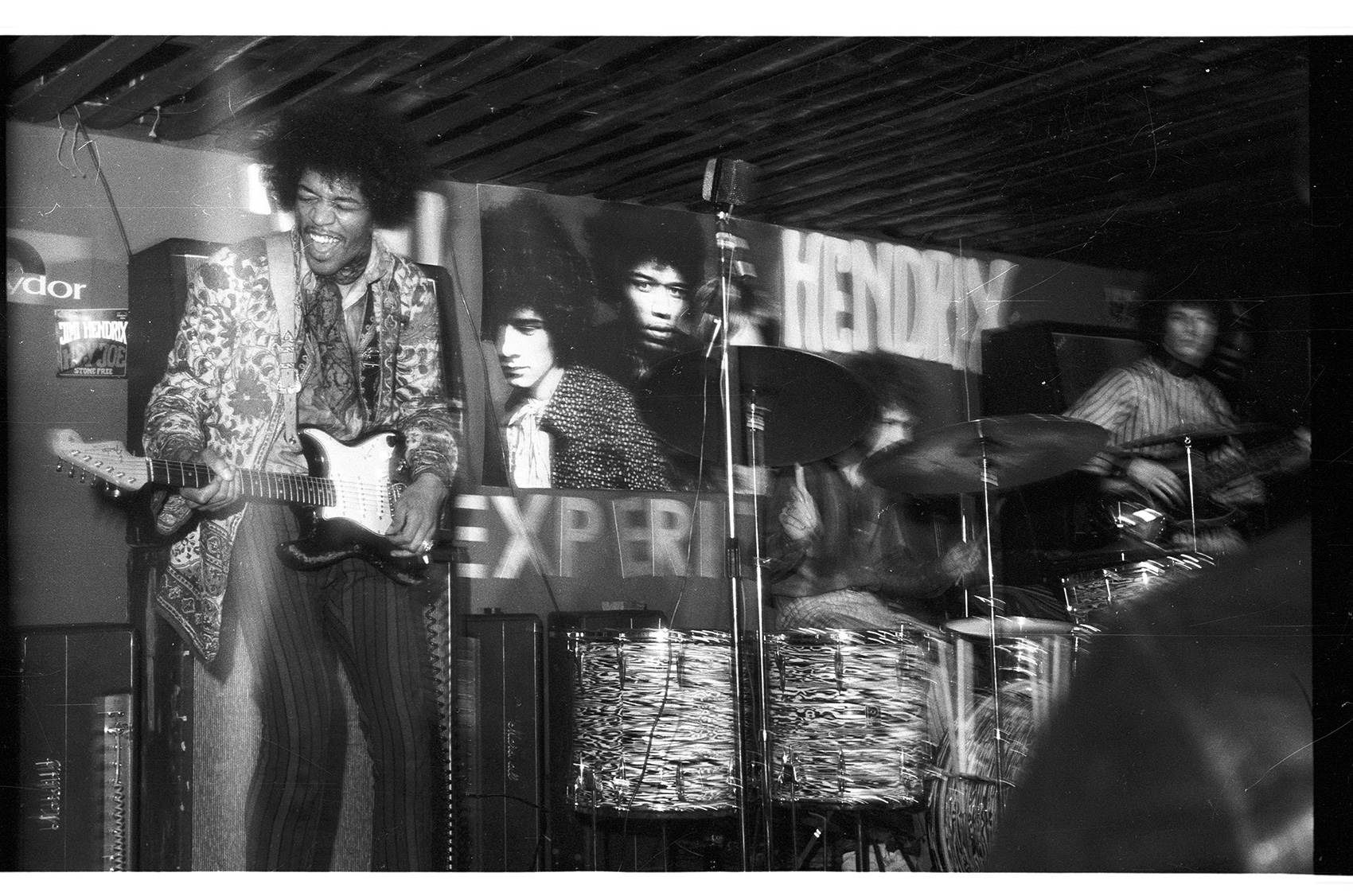
So, 50 years later, from these incredibly iconic moments, what does the music and art mean for you? In a moment of reflection, what does all of this energy mean to you?
I feel like, for me, it just depends on what mood I'm in, because there are certain songs I like when I'm exercising, certain songs that I like when I just want to be quiet and I'm reading, or other songs that really get me going. I really have to say that all of Jimi's songs are a soundtrack to my life. As a child, my dad would not let us listen to a radio station that wasn't playing Jimi. We had our little record player that only went up to 10, you know, 10 volume is much louder than it is now, and we would just wear out those albums and play Jimi all the time. So now, for me, it's like wherever I go, when I hear Jimi's music, whether it's out at a department store, or in the salon, or just walking the streets… like we were down in Memphis and walking on Beale Street, and out of one of the clubs comes one of Jimi's songs. I just always feel like when I hear that, I'm right exactly where I'm supposed to be.
jimihendrix.com

